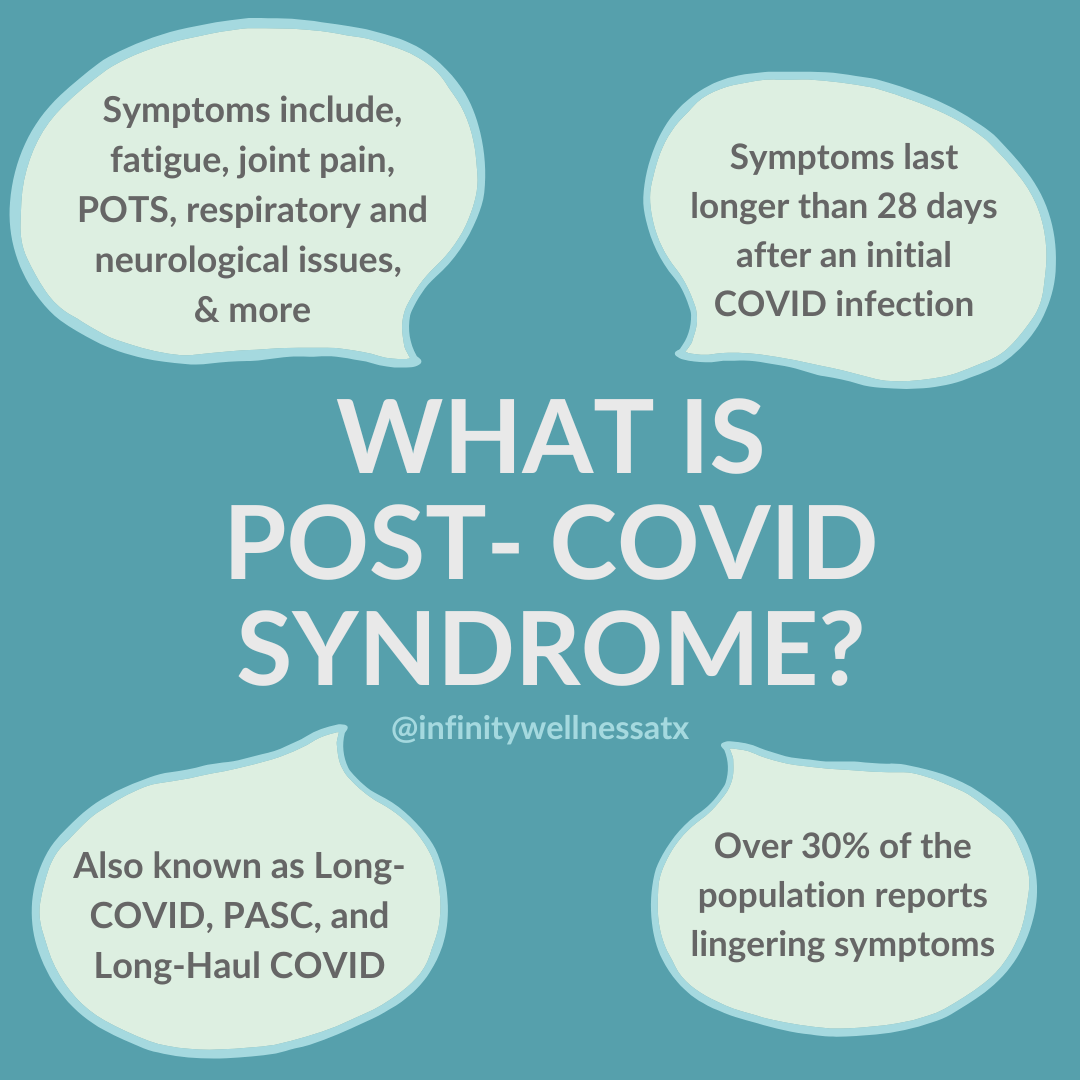Overcoming Long COVID Syndrome
How Long-Covid Syndrome Could Affect You
For many, the challenges of COVID-19 didn’t end with a negative test result. Long COVID, or post-acute sequelae of SARS-CoV-2 infection (PASC), brings persistent symptoms that can disrupt daily life and well-being. These lingering effects require a comprehensive, root-cause approach to identify and address the underlying factors hindering recovery. At Infinity Wellness, we’re dedicated to helping individuals overcome Long COVID and regain their vitality. Listen to Dr. Wards on the Designed to Heal podcast take a deep dive into healing form Long COVID. HERE
Listen to a Jessica's Long COVID journey back to health HERE


Common Symptoms of Long COVID
- Chronic fatigue and low energy
- Shortness of breath or difficulty breathing
- Brain fog, memory issues, or trouble concentrating
- Muscle and joint pain
- Persistent cough or chest discomfort
- Anxiety, depression, or mood swings
The Long-Term Effects of Long COVID
Without proper care, Long COVID can significantly impact physical, mental, and emotional well-being. It can also exacerbate pre-existing conditions or contribute to the development of new health challenges. Addressing these symptoms early is essential for restoring balance and preventing further complications.
Our Holistic Approach to Long COVID Syndrome
Infinity Wellness takes a personalized, root-cause approach to address Long COVID symptoms and help your body heal. Our care plans are designed to restore energy, boost immune function, and improve overall health.
Targeted Nutritional Support
Customized meal plans and supplements to reduce inflammation, support energy production, and rebuild immune health.
Respiratory and Cardiovascular Health
Techniques to improve lung capacity, oxygenation, and heart function, helping you breathe and move more freely.
Cognitive and Emotional Support
Therapies to alleviate brain fog, enhance mental clarity, and support emotional well-being.
Detoxification and Recovery
Personalized detox protocols to help your body eliminate lingering toxins and promote cellular repair.
Take the First Step Toward Long COVID Recovery
Your recovery journey starts with a thorough and personalized approach. Here’s how Infinity Wellness will guide you:
Schedule Your Initial Consultation
Meet with our expert practitioners to discuss your symptoms, health history, and recovery goals.
Comprehensive Diagnostic Testing
We recommend testing to evaluate inflammation markers, lung function, immune response, and overall health.
Develop a Personalized Recovery Plan
Based on your results, we will create a personalized treatment plan including nutritional strategies, respiratory therapies, and other tailored solutions to address your needs.
Ongoing Support and Monitoring
Regular check-ins and follow-ups ensure your recovery stays on track, with adjustments made to optimize your results.
Ready to Start Your Journey to Recovery? Take the First Step Today!
Stay Updated with the Latest in Wellness
Stay ahead in your health journey! Dive into the latest wellness tips, powerful strategies, and inspiring community stories on our blog—your go-to resource for staying informed, motivated, and empowered every step of the way.





